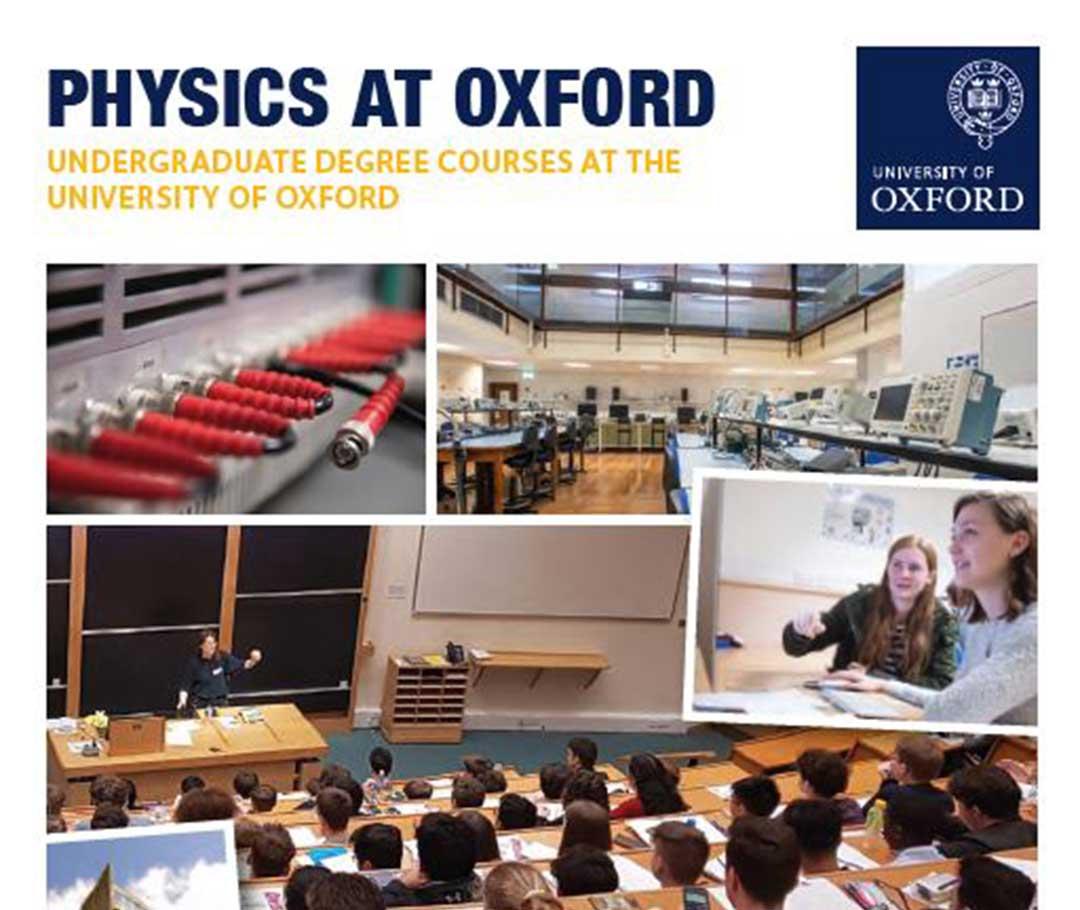Find out more about our undergraduate degrees: the three-year BA Physics, the four-year MPhys and the four-year MPhysPhil offered jointly with the Department of Philosophy, or, for the fourth year, transfer to the MMathPhys course. The BA and MPhys courses are accredited by the Institute of Physics (IOP).
Why physics?
Physics is about unravelling the complexity of the universe to discover how and why it works. Physicists around the world are unlocking the secrets of our Universe and discoveries in physics form the foundation of countless technological advances. The contributions of physics to solving global problems such as energy production, environmental protection, global warming and public health are essential; by choosing to study physics, you have the potential to have an enormous impact on our society.
Physics is an exciting and challenging field to study, requiring an adventurous and inquiring mind, and good mathematical abilities. The rewards include a deeper understanding of the world around us and the development of valuable transferrable skills that are highly sought after by many employers. Our alumni go on to pursue a broad spectrum of careers – not only in research but also in banking and finance, management consultancy, teaching, computing, the civil service, geophysical surveying and many others.
Why Oxford?
We want our student body to be as diverse as the world and Universe it studies and welcome students from all walks of life and from all around the world. We are committed to our equality, diversity and inclusion agenda and work hard to increase access for all.
Your study at Oxford will be a stimulating mix of mainstream lectures, training on experimental methods in our teaching laboratories, specialist lectures and focused tutorials, all complemented and underpinned by independent study. Our teaching philosophy is that a student will spend most of their time on attending lectures, experiment in the teaching laboratories, complete weekly assignments to be presented and discussed in tutorials, consulting different resources, and coming to a view of the subject which works for them – a view that will be developed and honed further in tutorial discussion. The aim is that the experience should be a preparation for tackling new problems, rather than an exercise in memorising received knowledge.
A key component of our teaching is the college-based tutorial: an hour of discussion with a tutor around pre-set work. Typically, students attend tutorials or classes in small groups, typically twice a week. Our teaching laboratories allow students to develop the experimental skills that enable them to carry out research as well as contributing to life skills such as team work, problem solving and clear communication. You will have access to a range of experimental laboratories including nuclear physics, astrophysics, biophysics, optics, electronics and condensed matter physics.
Oxford offers a vibrant student experience with hundreds of clubs and societies bringing enthusiasts together to offer a release from the academic rigour and colleges operating busy social calendars and providing tailored support. Find out more about student life at Oxford:
https://www.ox.ac.uk/admissions/undergraduate/student-life
The courses
We offer two undergraduate physics degrees: the three-year BA and the four-year MPhys, with an average combined intake of 180 each year. All applicants apply for the four-year MPhys in the first instance. In addition, a further degree course, the four-year MPhysPhil, is offered jointly with the Department of Philosophy and has an average annual entry of 16. In year 3, MPhys and MPhysPhil students can apply to transfer for their fourth year to the MMathPhys, a high-level course in mathematical and theoretical physics. Selection is on the basis of academic potential and motivation. For details of our entrance procedure, see our How to apply page.


